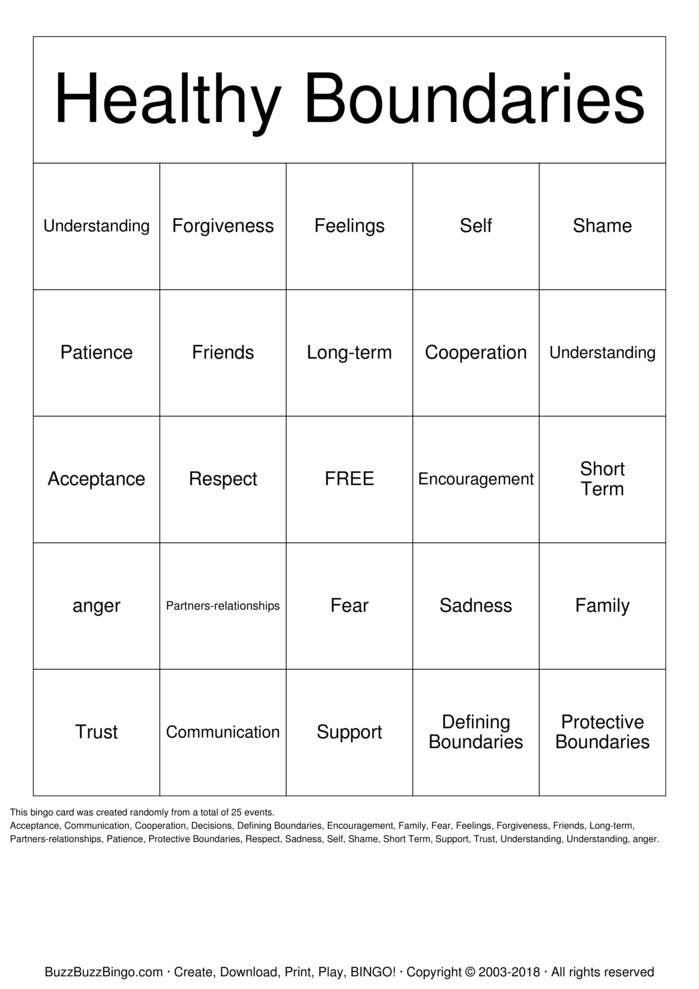Mother in law boundaries
19 Boundaries To Set With Your Mother-In-Law
You love your partner — but feel less enthusiastic about your overbearing mother-in-law.
You don’t hate her; it’s just that she’s always around, or always offering problematic advice, or always butting in where she doesn’t belong.
Basically, she’s the human embodiment of nosey, overbearing, passive-aggressive judgment.
So today, we’re looking at setting boundaries with in-laws.
Why is it a good idea?
What parameters make sense?
And how should you go about doing it?
Let’s dive in.
What's in this post:
- What Are Healthy Boundaries with Your In-Laws?
- List of Boundaries for Mother-In-Law: 19 You Should Consider Establishing
- 1. Romantic Relationships Are Off Limits
- 2. Side Taking Isn’t Expressed Publicly
- 3. Visitation Is a Privilege, Not a Right
- 4. Finances Are (Mostly) Personal
- 5. Don’t Conflate Favors and Bribes
- 6.
Passive Aggression Is Unwelcome
- 7. House Rules Must Be Followed
- 8. Abuse Won’t Be Tolerated
- 9. Calling and Texting Guidelines May Be a Good Idea
- 10. Information Exchange Is Voluntary
- 11. Diets Aren’t an Extended Family Activity
- 12. The Kids Always Come First
- 13. Playing Relatives Off Each Other Isn’t Allowed
- 14. Talk About Gifting
- 15. No Major Secrets
- 16. Travel Rights
- 17. Poisoning Kids’ Minds Is a High Crime
- 18. Gossiping Is Prohibited
- 19. Put the Reins on Unsolicited Advice
- How to Set Boundaries with In-Laws
What Are Healthy Boundaries with Your In-Laws?
When should you establish boundaries with in-laws? Every couple has a unique set of circumstances, and what’s good for the goose may not be so hot for the gander.
Generally speaking, though, there are five categories where it’s wise to establish perimeters.
- Parenting: As a parent, you have every right to raise your children in the best way you see fit, as long as it’s not detrimental to your kid’s physical or emotional health.
 Grandparents may try to add their two cents about everything from milk temperature to dating rules and everything in between.
Grandparents may try to add their two cents about everything from milk temperature to dating rules and everything in between. If their advice doesn’t gnaw at your nerves, smile, nod, and just ignore their counsel if it doesn’t gel with your vision. But if you’re on the verge of pulling out your last hair, have a chat about parenting boundaries.
- Visitation: Of course, you want your children to have relationships with their grandparents — but your mother-in-law doesn’t need to be at your house all the time. Sure, big family dinners once a week are not unreasonable and normal in many cultures.
But if in-laws are driving distances every five days to spend time with you and your children, it may be prudent to talk and work out a more reasonable visitation schedule.
- Vacations: Do your parents need to come on every vacation? Sure, it may have been helpful when you had infants. But if they never stop and take over all vacation operations, things may have gone too far.

We’re not suggesting you never holiday with your family. But it crosses the line when it becomes a domineering situation.
- Holidays: We all love to tell ourselves that holidays are a time of fun and joy. But every adult with a family knows they can be equally as stressful. Traveling logistics and issues related to spending equal time with all the grandparents can cause conflicts.
- Medical: Yes, if your child is choking and your in-law is standing next to them, the adult should perform the Heimlich Maneuver.
Otherwise, grandparents don’t need to be involved in the day-to-day health decisions about your kids — like picking doctors and passing judgment about medication.
List of Boundaries for Mother-In-Law: 19 You Should Consider Establishing
We’ve discussed common parental boundaries. Now let’s examine some specifics.
1. Romantic Relationships Are Off Limits
Your mother-in-law doesn’t need to be on the inside of your marriage or relationship. Broad strokes are fine.
Broad strokes are fine.
Butting into highly personal things is not. The role of your spouse’s mom is to provide support when summoned.
2. Side Taking Isn’t Expressed Publicly
There are always two vantage points to every story, and the truth probably lies somewhere in the middle.
But even if you take a “side” in a family squabble, there’s no need to express it around children or other relatives. In-laws should try to keep their noses out of drama.
3. Visitation Is a Privilege, Not a Right
Are you a grandparent? Do you show up at your children’s homes unannounced? Or, do you announce yourself…every single weekend? Be honest.
Are your kids humoring you, or would they rather have a weekend that doesn’t involve hosting duties?
A mother-in-law may think she is there to help and swear her only goal is to make your life easier.
But it takes resources and emotional energy to have mom-in-law loitering around your space every weekend. People need to recharge on days off, not play perpetual host.
People need to recharge on days off, not play perpetual host.
4. Finances Are (Mostly) Personal
Yes, when you become a parent, you take financial responsibility for your offspring until they’re – well, let’s be honest, forever.
Plenty of families help out with down payments for homes. Or maybe you know of a performing stock that you share with your siblings and cousins. That’s all fine.
But beyond that, in-laws shouldn’t be directing and critiquing their adult children’s financial choices — especially if the money isn’t theirs.
5. Don’t Conflate Favors and Bribes
Does your mother-in-law try to bribe you? She’ll pay for X if you allow her Y? It’s a classic move, and it always blows up at some point.
If someone in your family is heading down this path, nip it in the bud. Playing tit for tat with family members has a terrible track record.
6. Passive Aggression Is Unwelcome
Life is complicated enough. The last thing you need is to play the passive-aggressive game with your in-law. You don’t have time to read other peoples’ minds and deal with their pettiness.
You don’t have time to read other peoples’ minds and deal with their pettiness.
A no-passive-aggressive rule isn’t a terrible idea. Problems and hurt feelings are easier to solve when you can be direct with people.
7. House Rules Must Be Followed
All of you must follow house rules. Whether at your house or her place. The person who pays the bills gets to make the rules for the space.
8. Abuse Won’t Be Tolerated
Some parents come from a different time — when hitting kids was perfectly normal. Mental health sensitivity is also a new concept for many people over 45.
So make it clear that implementing “old-fashioned” punishments is a non-negotiable no for your spouse’s mom.
9. Calling and Texting Guidelines May Be a Good Idea
One of the most important mother-in-law boundaries is the texting, calling, and messaging hours.
Sometimes, they forget you have a life, too, and expect you to drop everything when they send a message and focus on their questions and needs.
Explain that you lead a busy life and can’t always get back to people immediately.
More Related Articles
27 Of The Most Glaring Traits Of A Female Narcissist
Do You Feel Not Good Enough For Your Partner? Here’s Why And 11 Things You Can Do To Change It
Make Your Mother Cry Tears Of Joy With These 21 Loving Letters To Mom
10. Information Exchange Is Voluntary
You’re not required to tell your mother-in-law everything about your life, whether about work or child care. Information exchange is voluntary.
Don’t push past another person’s limits. If someone closes the door on a topic, respect that.
And remember that it works both ways. You must also respect their privacy.
11. Diets Aren’t an Extended Family Activity
Do you have a perpetual dieter among your family ranks? Or maybe they’re just a health nut who feels the need to comment about everything anyone puts in their mouth. Whichever the case, it’s unbearable and needs to stop.
Whichever the case, it’s unbearable and needs to stop.
Keeping these topics off-limits can be a family saver. Remind everyone that health advice changes every ten years anyway.
12. The Kids Always Come First
Yes, you should always make time for self-care. But in the grand scheme of things, the kids always come first.
It’s not acceptable for an attention-craving family member to compete with your kids for the attention of you and your partner. Kids trump grandparents in most cases. That’s just the way it has to be.
If they can’t abide by this rule, limit their interaction with the kids. It may feel harsh, but it’s often necessary.
13. Playing Relatives Off Each Other Isn’t Allowed
Does your mother-in-law try to play people off one another to get what she wants? This behavior crosses a line. It creates excessive drama, and it’s exceptionally immature.
If your mother-in-law is messing around with this game, have a loving but unequivocal chat about quitting while they’re ahead.
If they want something or feel a certain way, they should just be open and honest about it with all involved parties.
14. Talk About Gifting
To save aggravation, grandparents should always clear gift purchases with parents beforehand. It saves a lot of trouble, not the least of which is getting the same thing.
It’s also important for grandparents to stay within the parents’ financial range. Yes, nana and pop-pop may want to spoil the kids with everything they want, regardless of their behavior.
But you’re in charge of making sure your offspring don’t turn into ungrateful brats who can’t appreciate anything. So set limits that fit within a lifestyle you think is appropriate.
15. No Major Secrets
If there’s big news that family members deserve to know, tell everyone. It’s unfair to keep some people in the dark about significant things and not others. Set rules about issues and problems that the family must share no matter what.
Your mother-in-law may think she has the same rights as Queen Elizabeth to be informed first, but that’s not how it works.
16. Travel Rights
One of the rarely discussed mother-in-law boundaries with grandchildren is travel rights. Does your mother-in-law want to take your child on a big trip?
Are you uncomfortable with the idea? Do you think they’re still too young? As the parent, you have the right to say no without feeling guilty.
Moreover, grandparents should always ask before presenting the idea to the child — especially if they’re teenagers.
17. Poisoning Kids’ Minds Is a High Crime
It’s unacceptable for grandma to poison her grandkids’ minds about either of their parents. Even if you are going through the nastiest divorce in the history of separations, it is bad form to use the kids as pawns.
Grandparents who try this must be censured.
18. Gossiping Is Prohibited
Gossip is hurtful, especially from the people who are supposed to love you the most. If your mother-in-law talks trash behind your back and puts your business in the streets, it’s perfectly acceptable to be irate.
Life is stressful enough. The last thing anyone needs are intra-family quislings. Draw a line.
19. Put the Reins on Unsolicited Advice
It’s good to be open to advice from parents – to a degree.
Yes, you want to learn from their mistakes and siphon their wisdom, but you also have a right to raise your child in a suitable way for their generation. That goes for your life too.
If your family member asks for advice, give it. If they don’t, just be there for support.
How to Set Boundaries with In-Laws
If you follow a few guidelines, it’s easy to set boundaries with in-laws.
Sure, there may be some hurt feelings initially, but if you approach the discussion with grace and treat everyone with respect, it’s usually not as bad as you may imagine.
- Keep It Positive: Boundaries are there to make you a closer family, not rip you apart. So keep it positive.
- Talk To Your Spouse First: Before talking to your mother-in-law, clear it with your spouse.
 After all, it’s their mom. Who knows, they may want to do it themselves. Or maybe there’s a reason she’s been acting difficult lately.
After all, it’s their mom. Who knows, they may want to do it themselves. Or maybe there’s a reason she’s been acting difficult lately. - Be Kind, Gentle, and Respectful: The goal is to be as kind and pleasant as possible when discussing the boundaries with in-laws. Again, this is supposed to help, not hurt.
- Don’t Feel Guilty: Some people feel wracked with guilt when they must ask their parents to take a step back. But you really shouldn’t. At one point, most people, including your parents, go through this parenting rite of passage.
- Have a Conversation: Set up a particular time to have the conservation. Lay everything out, so everyone is clear. If you’re not straightforward, things may get lost in translation and assumption.
- Follow the Rules: If you’re adamant about establishing boundaries, you also need to follow them. Don’t fall into a do-as-I-say-not-as-I-do pattern.
- Be Reasonably Flexible: Sometimes, life doesn’t work out as planned, and we need to adjust on the fly.
 In emergencies, you must cross boundaries. Use common sense.
In emergencies, you must cross boundaries. Use common sense.
Relations with your mother-in-law can be loving and pleasant if you put the proper boundaries in place, allow for reasonable flexibility, and everybody does their best to adhere to the rules.
And remember, there are worse things in life than a family member wanting to spend time with you. Yes, it can be maddening and frustrating, but always try to lead with grace.
Setting Boundaries with your Mother-in-Law - Hannah Jensen-Fielding
One of the relationships in a couple’s world that is often taut and stressful, is that between one member of the couple and one (or both) of their in-laws – in particular, with the mother-in-law.
You thought you were marrying your spouse, not your spouse and their parents!
Fortunately, while you cannot change the behaviour of your mother-in-law, you can set boundaries to help improve the relationship and reduce the stress.
What are Boundaries?
But first, what are boundaries in a relationship?
Boundaries are the limits you are willing to reach or let others reach in any relationship with you.
An example with your mother-in-law might be setting a boundary regarding what she needs to do to come over. Some couple’s boundaries might allow the in-laws to come over unannounced, others with a few days’ warning.
Boundaries for Better Relationships
Why are boundaries so important?
Boundaries are what help us to keep ourselves and our relationships healthy. They stop us from becoming drained because we are pushing ourselves beyond our limits. An example would be someone being stressed by their in-laws coming over unannounced, changing their boundaries to needing a day’s notice – and suddenly feeling less stressed.
Here are five stages to help you with building boundaries with your mother-in-law/in-laws:
- Become aware there is a need for boundaries.
- I suspect you have already reached this stage if you are reading this article. If not, take some time to consider your relationship with your mother-in-law. Is it what you want it to be? Does it cause conflict with your spouse? Have you wished it was different? Write down your answers so you have a clearer picture of how you are finding the relationship.

- I suspect you have already reached this stage if you are reading this article. If not, take some time to consider your relationship with your mother-in-law. Is it what you want it to be? Does it cause conflict with your spouse? Have you wished it was different? Write down your answers so you have a clearer picture of how you are finding the relationship.
- Know what your boundaries are.
- Here you need to choose your boundaries and phrase them in a way which makes them easy for you to say. Some areas you might want to consider boundaries for are when they visit, activities done with grandchildren, and potential financial situations. With regard to phrasing, stating a boundary as ‘I would like them to tell me two days in advance that they plan to come over’ is better than ‘I want them to tell me they want to come’.
- Keep in mind other individuals when choosing boundaries. You might only want to see your mother-in-law once a year, but you need to take into consideration the desires and needs of other individuals (such as your spouse, children and in-laws).
- Communicate your boundaries.
- You need to then communicate your boundaries to those involved – first your spouse and then your mother-in-law.
- This would also be the step where you would have a discussion with your spouse to decide if the boundaries are suitable for both of you.
 If not, then complete stage two as a couple.
If not, then complete stage two as a couple. - After communicating them to your spouse, then communicate them to your in-laws. Again, here you (and your spouse) might discuss boundaries with your in-laws and make any changes which are suitable to make.
- Stick to your boundaries.
- This is the hardest stage at first but is also the one which will make the other stages pay off. There must be consequences when a boundary is breached. I am not referring to punishments (though this might be appropriate with children), but rather not bending the boundaries (unless in case of an emergency). If you have discussed with mother-in-law that she must give you two days’ notice before coming over and she doesn’t, then go through your day as planned.
- Review your boundaries.
- Check your boundaries are working when an appropriate amount of time has passed and then make any necessary adjustments. Perhaps you only needed one day’s notice instead of two, if yes then change the boundaries to suit.

- Check your boundaries are working when an appropriate amount of time has passed and then make any necessary adjustments. Perhaps you only needed one day’s notice instead of two, if yes then change the boundaries to suit.
As you take the first step towards building a better relationship with your mother-in-law, here are a few last points to consider:
- While you should not intentionally harm your in-laws, it is possible they will get upset. You are not responsible for making them feel better. Boundaries work only when you remember that you can only control your actions, not the other persons’. The same is true for someone else’s thoughts and feelings.
- You might need to compromise in some areas. Know what is and is not negotiable for you, so what truly matters is not compromised. Also remember different family values might mean this is different for you, your spouse, and your in-laws.
- Sometimes boundary setting is more difficult than expected due to your spouse and in-laws being too enmeshed emotionally. If this is the case, professional support is recommended.
If you would like further support in boundary setting with you mother-in-law (or in general), please make an appointment with one of our counselling professionals.
To make an appointment try Online Booking. Alternatively, you can call Vision Psychology Brisbane on (07) 3088 5422.
Relations with the mother-in-law: how to set boundaries. Relations with the mother-in-law: important rules
Having married the man you love, you dream of your own family. But do not forget that your husband already has relatives and you will have to think about how to improve relations with your mother-in-law. On the one hand, this is a woman alien to you, and on the other, this is the mother of your beloved, and for her, the interests of her son are higher than yours.
Relations with the mother-in-law should be built respectfully, but firmly
How to establish the boundaries of relations with the mother-in-law
Quite often conflicts between the daughter-in-law and the mother-in-law arise because of mistakes made by women who selflessly love, albeit each in their own way, one person. Young wives often make mistakes, which then complicate their lives. Two typical mistakes can be distinguished here:
Two typical mistakes can be distinguished here:
- A negative perception of the mother-in-law is formed in advance. It is formed on the basis of the stories of girlfriends, reading books, watching movies. Alas, the stereotype that the "father-in-law" only does what interferes with the young is very common. Even if you do not openly demonstrate your negativity, it is still noticeable in conversations, intonation, and views. And this attitude itself sets the husband's mother against you.
- Another mistake is exactly the opposite: an overly enthusiastic and sometimes obsequious attitude towards the mother-in-law. This happens when a young wife really wants to please her husband's mother. Such behavior alarms the older woman and can cause rejection and thoughts about the insincerity, deceitfulness of the daughter-in-law.
When building relationships with your husband's relatives, especially with his parents, you should clearly define the boundaries of your own family, relations with your spouse. The main thing here is the understanding that you are a stranger to them, just like they are to you. Perhaps, over time, the situation will change and truly related feelings will appear, but this will not happen right away, you should not rush things.
The main thing here is the understanding that you are a stranger to them, just like they are to you. Perhaps, over time, the situation will change and truly related feelings will appear, but this will not happen right away, you should not rush things.
Complication of relations with the mother-in-law: what to do
It often happens that fairly smooth and even positive relations between the daughter-in-law and the mother-in-law become worse over time, cold alienation can turn into mutual reproaches, and even outright hatred. The reasons can be very different, and, as a rule, each of the parties to the conflict considers itself right.
It is not worth dismantling and finding out who is right and who is wrong.
Moreover, there is no need to try to attract a husband to his side - it will not be easy for him to make a choice between his wife and mother
Unfortunately, not all daughters-in-law have a good relationship with their mother-in-law. Some simply spend their whole lives in a state of "cold war", and some manage to feel all the "charms" of open confrontation. And, of course, the relationship with the mother-in-law almost always inevitably affects your family with your husband. How to build relationships with your mother-in-law in order to maintain peace and harmony in your family and your own peace of mind?
Some simply spend their whole lives in a state of "cold war", and some manage to feel all the "charms" of open confrontation. And, of course, the relationship with the mother-in-law almost always inevitably affects your family with your husband. How to build relationships with your mother-in-law in order to maintain peace and harmony in your family and your own peace of mind?
Types of mothers-in-law
1. Mother-in-law - girlfriend
If your mother-in-law is of this type, you can consider yourself lucky! Relations with such a mother-in-law are usually very even, without pressure or an attempt to dominate each other. The mother-in-law loves to consult with her daughter-in-law, periodically calls up and communicates with her during rare meetings. Such a mother-in-law does not give extra advice - for this she is too passionate about work or other matters, and, besides, this type of mother-in-law believes that young people themselves can figure out their lives.
Such communication does not seem intrusive, so the mother-in-law and the daughter-in-law usually get along with each other.
2. Mother-in-law is a spy
The standard image of such a mother-in-law: an energetic divorced woman who has nowhere to put her strength, so she loves to delve into someone else's life, discuss the actions of others and teach them to reason, establishing her own rules along the way. Relationship with such a mother-in-law are formed quite tensely, since, in an effort to control the implementation of her orders, she will not fail to even peep or eavesdrop - and, thereby, obtain the information of interest to her.
3. Mother-in-law is a despot
This is probably one of the most irreconcilable types of mothers-in-law. The despot mother-in-law demands only unquestioning obedience, believing that young people are obliged to listen to her in any situation and do only what she says. Relations with such a mother-in-law, unless, of course, you plan to fulfill all her whims and be guided only by her advice, will be very tense. Open confrontation is not ruled out.
4. Mother-in-law - mother hen
Such a mother-in-law is an image of an offended mother, who from childhood enveloped her son in care, protected from external negativity - and now it is difficult for her to readjust and understand that her son is already an adult, and he has his own life and his own family. Relations with such a mother-in-law can be turned in a positive direction, the main thing is to be patient with her, without quarrels and conflicts, and also, pay more attention to her husband ... at least when she can watch you.
5. Mother-in-law is a business woman
If you got a mother-in-law - a business lady - you can consider yourself lucky! Such a mother-in-law will not get into the personal life of her son and daughter-in-law and control the degree of roasting of cutlets. She has a lot of her own affairs, and her career is clearly more important than her family. Relations with such a mother-in-law are likely to work out well - and if you also have common professional interests - you can consider that you have a true partner!
6. Mother-in-law - husband's wife
Mother-in-law - husband's wife
If you manage to establish good relations with such a mother-in-law, you can be sure that your union with your husband will be very strong. The mother-in-law, seeing that you love her son, will help as needed and protect your family hearth. The main thing is not to refuse help, but also do not try to hang all your problems on your mother-in-law. In this case, relationship with the mother-in-law will be beautiful with you, and she herself will be proud of her son and daughter-in-law and will not lose her sense of her own importance.
7. Mother-in-law - part-time, mother-in-law
Such a mother-in-law is an ideal option for any daughter-in-law. Seeing how her own daughter is in conflict with her mother-in-law, such a mother-in-law will show wisdom and tolerance towards her own daughter-in-law, guided not so much by maternal instinct as by female solidarity.
The ideal variant of establishing relations with the mother-in-law in this case would be to establish friendship with the sister-in-law. Automatically, this will mean a wonderful relationship with the mother-in-law.
Automatically, this will mean a wonderful relationship with the mother-in-law.
The most common conflict situations in relations with the mother-in-law
1. Unexpected advice
Many mothers-in-law sin by distributing a huge amount of advice to a young family - and the daughter-in-law in the first place. First, these tips relate to housekeeping, then to caring for a child. Many daughters-in-law do not withstand constant pressure, which does not have the best effect on relations with their mother-in-law.
Of course, sometimes the advice of mothers-in-law, the relevance of which was lost more than ten years ago, is annoying. But still, in this situation, you can advise the daughters-in-law to be more tolerant of the mothers-in-law and at least pretend that they listen to the advice provided. In the end, no one is stopping you from doing it your own way. Moreover, sometimes the advice of the older generation is useful even in modern realities.
Another good way to improve relations with the mother-in-law in this situation is to build a dialogue with her. True, for this you will need to be patient and argue each point of your position. Clippings from newspapers and magazines, articles on the Internet, useful TV programs or recommendations from a pediatrician will come to your aid.
True, for this you will need to be patient and argue each point of your position. Clippings from newspapers and magazines, articles on the Internet, useful TV programs or recommendations from a pediatrician will come to your aid.
2. Irreconcilable contradictions in the principles of education
Sometimes in relations with the mother-in-law there are situations when a compromise is impossible - for example, in the case of irreconcilable contradictions in the principles of education.
For example, your child is allergic to sweets and you limit their consumption of sweets. And then the grandmother arrives - and the baby has a confectionery paradise! What compromises can there be? Probably none.
The same applies to the principles of education. Agree, a strange situation when a mother, who forbids tearing the wallpaper, acts as the personification of universal evil, and a grandmother, who allows everything her heart desires, becomes a good fairy. A child should not have two options for education - this is at least a pedagogically incorrect strategy.
What to do in this case? If the issue is really important for you, there should be no concessions. The only thing you can do is to explain to the mother-in-law the reason for your demands, so that it does not look like nit-picking on your part and a desire to discredit the authority of the mother-in-law. If the question is not so fundamental, you should not spoil your relationship with your mother-in-law because of trifles.
Many mothers also believe that only their parenting methods can make a difference for a particular child. And grandparents are secondary, so you can’t really listen to them.
Agree, the main criterion should still be the attitude of your child to these people. And if he communicates with his grandmother with pleasure - why deprive the grandmother of the opportunity to participate in the upbringing of the baby?
3. Intrusive visits
If you listen to daughters-in-law, many of them suffer from intrusive visits from their mother-in-law to their home - sometimes even without warning. Naturally, this leads to tension in relations with the mother-in-law.
Naturally, this leads to tension in relations with the mother-in-law.
The main reason for the negative attitude towards the mother-in-law's visits is the "surprise effect" - and it is not so important whether the mother-in-law came completely without warning or called and stated in a categorical tone that she would arrive in half an hour. The bottom line is that the interests of a young family are not taken into account in any way - and the mother-in-law is not interested in the fact that you wanted to relax at that moment, do the cleaning, go to the cinema or just be alone. In addition, you are well aware that if the mother-in-law comes and does not see the ideal order, you are unlikely to be able to justify yourself and prove that you are in fact a good housewife.
How to correct the situation and, at the same time, not ruin the relationship with the mother-in-law? First of all, recognize the right of the mother-in-law to visit you - after all, her son and her grandchildren live with you.
Secondly, calmly ask your mother-in-law to warn you about visits in advance next time. Explain this wish by the fact that otherwise you may not be at home, and you would like to meet your mother-in-law well, having prepared a delicious treat in advance. That is, the mother-in-law must understand that the point is not that you do not want to see her, but that you want her to be as comfortable as possible!
Thirdly, try to accompany an uncomfortable situation with humor, gently hinting that your mother-in-law is an unexpected guest for you. So you can maintain a good relationship with your mother-in-law, but, at the same time, unobtrusively let her know that this situation is out of the ordinary for you.
And fourth, don't focus on the negative. Even if the visit is unexpected and unpleasant, do not frantically start shifting all things in their places and dust off. If the mother-in-law tries to point you to something, take her away to drink tea.
4. Inappropriate gifts
Many daughters-in-law, not knowing whether to laugh or cry, talk about inappropriate and strange gifts given by their mothers-in-law. It can be a Chinese toy that crumbles in your hands, an inappropriate “over 50” cosmetics set, a set of gift-wrapped floorcloths, etc. Daughters-in-law react especially sharply to gifts for children, which, for some reason, the kids will not be able to use. It can be chocolate given to an allergic child, or a toy that is clearly not age appropriate. How to keep a good relationship with mother-in-law in this case?
It can be a Chinese toy that crumbles in your hands, an inappropriate “over 50” cosmetics set, a set of gift-wrapped floorcloths, etc. Daughters-in-law react especially sharply to gifts for children, which, for some reason, the kids will not be able to use. It can be chocolate given to an allergic child, or a toy that is clearly not age appropriate. How to keep a good relationship with mother-in-law in this case?
First, be tolerant. It's not the gift that's important, it's the attention. In the end, you can always buy something you need yourself.
Secondly, gifts that cannot be used by the baby, it is better not to show him at all, so as not to provoke a tantrum. And mother-in-law tactfully explain why you did it. If the gift is not harmful and is suitable for the child by age, accept such a gift, thank and give it to the child. Maybe you think this thing is useless - but the mother-in-law thinks differently, and she has the right to do so.
Thirdly, if your mother-in-law's ability to choose gifts leaves much to be desired, discuss with her the option of giving money. Alternatively, you can go to the store with her and choose the right thing to your liking, asking your mother-in-law to pay for it.
Alternatively, you can go to the store with her and choose the right thing to your liking, asking your mother-in-law to pay for it.
Some important rules in your relationship with your mother-in-law
Here are some important rules that will help you improve your relationship with your mother-in-law:
Give up the lead. For many years your mother-in-law was the main woman in your husband's life. Do not abruptly try to rebuild his value system. You must accept the following alignment for yourself: the mother-in-law is the mother of your husband, who gave birth to him and whom he loves, you are the mother of his children and the woman whom he also loves, but in a different way. Do not compete for a ghostly palm.
Be a peacemaker. If your husband starts conflicts with his mother, do not take his side, uniting against your mother-in-law. Also, do not unite with the mother-in-law against her husband. You must be in the middle, smooth out sharp corners and act as a peacemaker.
Do not copy your husband's relationship with his mother. Your relationship with your mother-in-law is only yours, you should not copy them. In any case, it will look like a bad game.
Do not underestimate the power of the word. The way you address your mother-in-law can help you build a relationship with her. Addressing by name and patronymic forms a certain distance between you, but at the same time, it is likely that the mother-in-law will not interfere in your life unnecessarily. Calling "mom" will subconsciously make your mother-in-law treat you like a daughter. And addressing by name is suitable for a youthful mother-in-law who wants to become your friend. How exactly to address the mother of your husband is up to you.
Do not be captivated by myths. The most common myth is that the mother-in-law is jealous of her son for her daughter-in-law. Trust me, this is extremely rare. Basically, the cause of conflicts lies in a completely different plane. Rather, on the contrary, many mothers-in-law try to do everything in order not to quarrel with their daughter-in-law.
Rather, on the contrary, many mothers-in-law try to do everything in order not to quarrel with their daughter-in-law.
Keep your distance. Try not to involve third parties in your relationship with your husband and children. Moreover, neither on the part of her husband, nor on her part. This way you will almost certainly maintain a good relationship with your mother-in-law.
Also, don't be under the illusion that you and your mother-in-law can become friends. Of course, someone succeeds, but still it should not be an end in itself. The main thing is to maintain respect.
Avoid quarrels and accusations. Try to treat your mother-in-law indulgently - even in those cases when, in your opinion, she is not right. Still, she was born in a different time, she has different views on life. And your task is to find a compromise with it and not succumb to provocations. Do not skimp on small gifts as signs of attention to the mother-in-law, ask her for advice so that she feels significant and understands that you are not against her.
And don't forget the most effective way. Imagine that your son grew up, got married - and you became a mother-in-law. Think from the “other side” position, how should a daughter-in-law behave in order to maintain a good relationship with her mother-in-law? And, based on this, adjust your communication.
It is rare to find exemplary families in which mother-in-law-daughter-in-law relationships are filled with understanding and harmony. Naturally, this cannot but affect the interaction of a married couple. How to build a relationship with your mother-in-law so that everyone feels happy?
Main types of mothers-in-law
Mother-in-law is a girlfriend: her life is filled with various events, so she does not stick her nose into the affairs of the young. Rare phone calls, no attempts at dominance, cordial communication during infrequent meetings is the key to a good relationship.
Spy mother-in-law: usually divorced, single. She has a lot of free time and energy, which she directs with enviable enthusiasm to intervene and control every step of a married couple.
Mother-in-law: sees in her son a child who, despite the growing gray hair, still needs her guardianship and extra care.
What causes the conflict
Before proceeding to the rules of interaction with different types of mothers-in-law, it is necessary to understand why exactly there is a conflict of interests.
Unsolicited advice. Often the mother-in-law takes the “I know best” attitude. What kind of daughter-in-law enjoys frequent pulling and corrections? "Advice" can relate to absolutely all spheres of life: from everyday issues to the choice of clothing style. Naturally, you should look at the situation soberly and answer the question: maybe the mother-in-law's advice is really useful?
Principles of education: grandmother's recipes against modern discoveries. One of the most common causes is disagreement in the upbringing of children. On this issue, each has its own views and principles. Finding a compromise can be extremely difficult.
Unexpected guest. Some mothers-in-law like to make surprise visits. Daughters-in-law do not like the fact of the visit so much as the “surprise effect” that makes them stay in their house in constant tension.
Some mothers-in-law like to make surprise visits. Daughters-in-law do not like the fact of the visit so much as the “surprise effect” that makes them stay in their house in constant tension.
How to build relationships with your mother-in-law
It is rightly said that “it always takes two hands to clap”. There is no such thing that only one side is to blame for the conflict. The first step is to frankly answer two questions:
“Could I have behaved wrong somewhere?”
"Is it really important to have a warm relationship with your mother-in-law?"
If a response is received, then proceed to specific steps:
Give the palm. It is important to understand that a man cannot drastically change his mind and forget about the woman who was the main thing for him before the appearance of his wife. There is no need to incite competition where it is absolutely not needed.
Get rid of myths. You can often hear about the jealousy that the mother-in-law feels for her daughter-in-law. In most cases, these are myths. Many mothers-in-law, on the contrary, themselves desire a warm relationship.
In most cases, these are myths. Many mothers-in-law, on the contrary, themselves desire a warm relationship.
The third extra. Even with a good relationship with the mother-in-law, you should not involve her in resolving issues with her husband. It may become a matter of habit for her.
Even if you do not live with your husband's mother, sometimes your interests do not converge. And if you have to exist under one roof, the likelihood of conflicts is growing. Try to get out of them with dignity, but without prejudice to your small family, that is, to your relationship with your husband. You have the right to defend your marriage, your boundaries, and your right to be happy.
Keep your distance. Determine for yourself the boundaries of your relationship: where you are ready to let your mother-in-law go, and where not. Do it with kindness, but firmly enough.
Keep the chain of command. For example, don't try to call your mother-in-law "mom" right away, at least until your relationship really gets really warm. Call your husband's mother by her first name and patronymic, and better for you.
Call your husband's mother by her first name and patronymic, and better for you.
Be "in the house". Be able to analyze and distance yourself from what makes you nervous. If every time you come to visit “mother”, she tries to prick you in front of everyone, not heeding the requests of your husband, just give up unpleasant trips.
Don't heat things up. Even if the conflict cannot be avoided, it is not worth raising its degree. Do you know how diplomats go around corners? With just one phrase: "You are absolutely right." This expression helps to soften the opponent, after which you can safely express your opinion.
Write a list. If the mother-in-law expresses her dissatisfaction and criticism, analyze what it is connected with: "tasteless food" or "dirty house", "inability to raise a child" or the fact that you "do not follow the appearance of your husband." Write down all the possible options, and next to each, note how you can answer politely, but peremptorily. First, it will help you see what your husband's mother is really right about. Secondly, in the next skirmish on the same occasion, you will be fully armed and give a decent answer, while excessive feelings will be under control.
First, it will help you see what your husband's mother is really right about. Secondly, in the next skirmish on the same occasion, you will be fully armed and give a decent answer, while excessive feelings will be under control.
Should I involve my husband?
It is important to understand that both husband and wife are always responsible for what happens in the family. Therefore, if attacks from the mother-in-law become commonplace, tell your spouse about it. If the marriage needs to be protected from external factors (even if the relationship with the mother-in-law becomes such a factor), you cannot do it alone. By the way, if the husband does not want to listen to you at all and does not pay attention to the problems that you are talking about, this is an alarming sign for the relationship.
It is important to express your feelings correctly. Understand: the mother-in-law first of all sees her child in your husband, and not someone else's spouse, so after the wedding it can be difficult for her to get used to the new role. This can lead to her being overly critical of you. Do not be like your mother-in-law if she allows herself an unpleasant comment addressed to you - remember that, whatever she may be, she is the mother of your beloved man. But be sure to tell your other half about it. Let the husband talk to his mother and let her know that she does not make her son happy with caustic remarks about you. And that, whatever his wife is, this is his personal choice, which must be respected.
This can lead to her being overly critical of you. Do not be like your mother-in-law if she allows herself an unpleasant comment addressed to you - remember that, whatever she may be, she is the mother of your beloved man. But be sure to tell your other half about it. Let the husband talk to his mother and let her know that she does not make her son happy with caustic remarks about you. And that, whatever his wife is, this is his personal choice, which must be respected.
Take her place
If we don't like something, we usually focus on our feelings, resentment, irritation. But do not forget: your mother-in-law is also a woman and you still love the same person with her. Try to take her place.
At the beginning of a relationship, don't ignore your mother-in-law's desire to talk to you in private, and maybe make some inquiries about you. This is not dictated by suspicion and not by the desire to convict you of all mortal sins. You are just a new person for her, whom she does not know and who will live with her child.
Try to learn to spare the mother-in-law's feelings - this will help to avoid a lot of unnecessary words addressed to her in case of a conflict. Think about it, you will also be a mother-in-law or mother-in-law, and imagine how important it will be for you to understand what kind of person is next to your child. By the way, any woman who has invested all her love and strength in raising her child has the right to wish him a worthy match, this is quite natural.
When a girl gets married, she ends up in another family with established traditions and habits. And from that moment on, she will have to build relationships not only with her husband, but also with his relatives, and, first of all, with his mother. The peace and tranquility of the new family will largely depend on how wisely the young wife behaves. Whom will the mother-in-law and daughter-in-law become - rivals, enemies or girlfriends? How to build a relationship with your mother-in-law so that she really becomes a “second mother”?
Strange as it may seem, young women repeat the same mistakes that prevent them from establishing normal relationships with their mothers-in-law. Let's look at some of them.
Let's look at some of them.
1. It used to be that a daughter-in-law should call her mother-in-law mom. But today, young wives prefer to use their first and middle names or just their first names. In order not to cause a conflict, it is worth tactfully asking your husband how he relates to this issue. If he insists, then it is you who will have to make concessions and call your mother-in-law mom. If the husband’s position on this issue is not fundamental, you can live in peace and call your mother-in-law as you like (of course, with due respect).
2. Another mistake young wives make is trying to compete with their husband's mother. Naturally, you will want to show your best side, achieve recognition as a good housewife and caring wife. But this must be done very delicately, without causing jealousy in his mother. If the mother-in-law decided to teach you how to cook pasta or make the bed correctly, listen calmly, because it is not at all necessary to follow these tips, especially when you do it much better. And never, under any circumstances, should you put your husband before a choice - either mother-in-law or wife. After all, the choice may not be made in your favor, and in the end you will be left with nothing.
And never, under any circumstances, should you put your husband before a choice - either mother-in-law or wife. After all, the choice may not be made in your favor, and in the end you will be left with nothing.
3. Preparing for a wedding usually occupies all the thoughts of a young woman, but it is worth thinking about how to live in her husband's family after marriage. Here the young wife will have to show maximum patience and tact. You should not immediately rush to redo everything in your own way, even if it is really better than what existed before you. After all, convenient or not, it is familiar to the life of this family, and not every permanent resident of the apartment will agree to change their habits for the sake of the newly-minted rebel.
4. When communicating with absolutely all family members, a young wife should observe maximum courtesy and patience. Your goal is a respectful relationship and mutual understanding. If a problem is brewing, try to solve it before the husband arrives. Never use offensive or rude language. In the event of a quarrel, your husband will already say a lot of “good” about you, so you should not aggravate the situation and give a reason to accuse you of bad manners. Learn ways to protect against and try not to lose your composure and optimism.
Never use offensive or rude language. In the event of a quarrel, your husband will already say a lot of “good” about you, so you should not aggravate the situation and give a reason to accuse you of bad manners. Learn ways to protect against and try not to lose your composure and optimism.
6. Very often the question of how to build a relationship with the mother-in-law arises after a child is born in a young family. Young parents and a new grandmother may have different views on raising children. With great tact and delicacy, you need to persistently convince the grandmother of the need for one or another approach to raising a grandson, and be sure to achieve complete understanding in fundamentally important points.
With a strong desire to establish respectful relations with the mother-in-law, it is still possible, although difficult to achieve. It’s just that a young wife should often mentally put herself in the place of her husband’s mother, and think about how she would feel at a certain moment. After all, do not forget that sooner or later she, too, may find herself in a similar situation when her own children grow up. And of course, at the first opportunity, a young family should move and live separately. Meeting only on big holidays like birthdays or New Years will make it much easier for you to communicate with your husband's in-laws. The most wonderful relationship with the mother-in-law will develop when she realizes that you are the very woman who can take care of her son and grandchildren, even if you have to wait for this recognition all your many years of married life.
After all, do not forget that sooner or later she, too, may find herself in a similar situation when her own children grow up. And of course, at the first opportunity, a young family should move and live separately. Meeting only on big holidays like birthdays or New Years will make it much easier for you to communicate with your husband's in-laws. The most wonderful relationship with the mother-in-law will develop when she realizes that you are the very woman who can take care of her son and grandchildren, even if you have to wait for this recognition all your many years of married life.
“How much do you earn?” 5 Signs Your Mother-in-Law Is Violating Your Boundaries Others are sure that the chosen one of the beloved son should become his own daughter and call him exclusively “mother”. Still others love their sons so much that they are not ready to share them with anyone - in this case, the daughter-in-law has no chance to please the new relative ... One way or another, all mothers-in-law have one thing in common: from time to time they violate the personal boundaries of daughters-in-law and often do not notice it themselves.

Mother-in-law wants to be aware of all the details of your life
She cares about how much you earn when you come home from work, how you spend your evenings and why you are looking for a new smartphone if the previous one “was bought recently”. She can easily scold you or her husband if you did not answer her call in time, and she will definitely find out the reason, and she will not hesitate to study the documents without permission, which accidentally turned out to be in a conspicuous place when she came to visit you. And finally, her signature question: when will the second/third/fourth child in your family?
What to do? Discuss with your husband what is acceptable in relations with the mother-in-law, and where does the personal territory begin, where you are not ready to let anyone in, and act together. The best answer to a tactless question is a joke that will help defuse the situation. However, you are not required to answer questions that grossly violate your personal boundaries.
The mother-in-law involves in her affairs
In the spring, the family has to give up everything to put the dacha in order. Summer is the time to dry apples together. In the fall, the mother-in-law has to drive to the doctors every now and then so that she can treat her back, which is tired after the garden season. In winter, you need to help throw out the excess from the mezzanine ... If you constantly have to give up personal plans in order to take care of your mother-in-law, not everything is in order in your relationship.
What to do? Learn to sometimes refuse and politely remind the mother-in-law of the limits of what is permitted. Helping others is good and right, but you have your own concerns and interests that should not be forgotten. And yes, you have the right to meet friends on Saturdays, and devote Sundays to doing nothing, even if your mother-in-law had other plans for you.
The mother-in-law
cleans up your house Someone goes on vacation, and upon returning finds that the mother-in-law has arranged things in the apartment in accordance with her ideas about beauty, and someone constantly gets gifts chosen without regard to interests and tastes of their future owner. So in modern Scandinavian-style apartments, fluffy multi-colored rugs and bright reproductions in elaborate frames appear, and the owners face the question: how to react and where to store these things?
So in modern Scandinavian-style apartments, fluffy multi-colored rugs and bright reproductions in elaborate frames appear, and the owners face the question: how to react and where to store these things?
What to do? Thank your mother-in-law for your help and gifts, especially if the main motive for her was taking care of you, but still explain that only you can clean up the house and decide what items and where will be located. And in case the mother-in-law wants to please you, invite her to choose something from your wish list or come to visit without any gifts.
Read also: When the nanny came in a skimpy top, there was no doubt
- Photo
- Shutterstock/Fotodom.ru
Your mother-in-law knows better than you how to raise children
When to introduce complementary foods? Should I send my child to kindergarten? At what age should he learn to read? When to put baby to bed? Should I give an antipyretic? How to teach a child good manners? The mother-in-law has answers to all these and any other questions and, most importantly, advice, which she generously gives out at any opportunity.
What to do? Let the mother-in-law speak, but indicate that you have the final say. Only parents can make decisions regarding the life, health and upbringing of the child. But if the mother-in-law wants to help you implement your plans - for example, take your grandson to the pool or work out math with him - do not deny her this.
The mother-in-law manipulates you
If the mother-in-law "pressures up" every time you and your spouse go to a party with friends, "grabs the heart" when you announce at a family dinner that you are planning a vacation, then it seems that most of all she needs your guilt. Consciously or subconsciously, she wants her son, and possibly her daughter-in-law, too, to be nearby, under her wing, so that she can fully control your life and surround herself with your care.
What to do? Learn to distinguish mother-in-law's manipulations from situations when she really needs help, and not to react emotionally.














